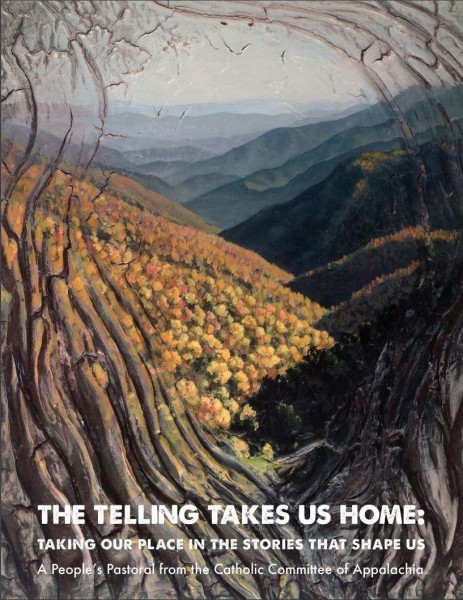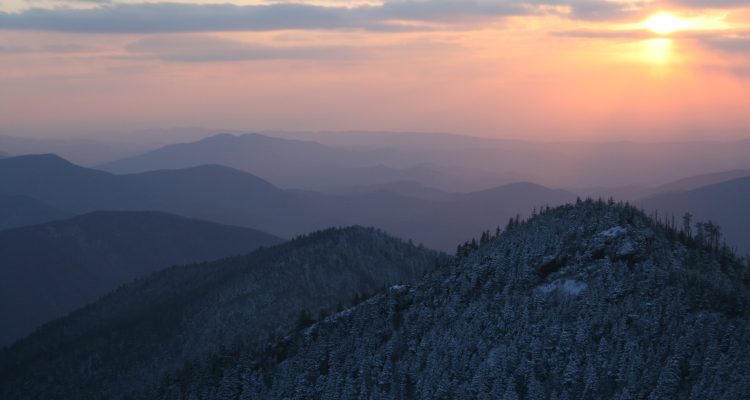Story courtesy of Weelunk partner West Virginia Public Broadcasting
Accompanying story here: Listen
The Catholic Committee of Appalachia just published a pastoral letter. It’s the third of its kind. Forty years ago the first was written and acclaimed as “one of the most significant statements to emerge from the U.S. Catholic Church,” according to the West Virginia Encyclopedia.
The Magisterium of the Poor and of the Earth
“When the story of these mountains as “resource”
takes over the story of the mountains as “home,”
we become homeless in our own place,
and disconnected from Earth and one another.”
These are some of the opening lines from the new pastoral letter released from the Catholic Committee of Appalachia: The Telling Takes Us Home: Taking Our Place in the Stories That Shape Us. The Committee is a network of faith-based people who are focused on addressing social justice issues in Appalachia.
“The Pastoral itself is a telling of the people of Appalachia in all of our diversity,” said lead author of the letter, Michael Iafrate — a Wheeling resident completing a doctorate in theology. “It’s the telling of the church at the grassroots that’s committed to justice, which is often a contrary voice in larger church context.”
Committee members organized listening sessions with religious and nonreligious alike over a four-year period. Their listening sessions especially targeted marginalized groups like women, miners, the homeless and imprisoned, people of color, and folks with a variety of sexual orientations.
The resulting missive is 60 pages (74 if you include the notes) written in an open-verse poetic form, studded with Parkersburg-native Christopher Santer’s paintings of mountains that have been surface-mined. Iafrate says themes of the open letter are similar to many recent messages from Pope Francis. The pontif has been preaching about moral obligations to care for the earth and the wisdom to be learned on that subject from marginalized populations most affected by ecological devastation.

From the People of God
“I remember how significant the first pastoral was, and this is like the first one,” said Jaculyn Hanrahan, a lawyer and a Catholic nun from the Congregation of Notre Dame. Hanrahan is also the director of the Appalachian Faith and Ecology Center and has been a member of the Catholic Committee of Appalachia since 1982. On a steering committee for this pastoral, she says the letter came from a need to give people hope and spread a message of inclusivity.
The first and second people’s pastorals were endorsed by Catholic bishops but this most recent letter comes without endorsement from any church hierarchy.
“This time we just felt we wouldn’t get [endorsements], to be honest,” Hanrahan said, “because some [bishops] had already told us that they wouldn’t have signed the first one.”
Hanrahan does credit many of the southern bishops in Appalachia for helping to fund this latest pastoral, but after some thought the committee decided no endorsements were really necessary.
“We are the people of God, and we have this authority,” Hanrahan said, quoting this passage from the pastoral letter:
By lifting up the authority of these stories,
we Christians at the grassroots hope to contribute to the growing movement
that is telling a new story about our region.
This is a pastoral message
from the people themselves
to our region,
to the world,
and to the churches,
leaders and laity alike.
“And we’re accepting the freedom that we have as people,” Hanrahan added, “to name a truth that sometimes those in authority aren’t free to name.”
Stories of Justice Beyond Faith Boundaries
“So we’re really hoping for a grassroots, viral spreading of this message with all sorts of groups, not just Catholic but even beyond people of faith,” said lead author Michael Iafrate. He calls the letter an ecumenical gift-exchange in the work for social justice. But nonreligious folks also reviewed the pastoral before publication.
“And many said they were able to find their voice in the document as well which was really important to all of us — that the document could be something that could help build bridges for the work of justice.”
Iafrate says lots of different people are trying to tell a new story of what it means to be Appalachian these days. He says the pastoral is a way for people of faith to join that chorus.


